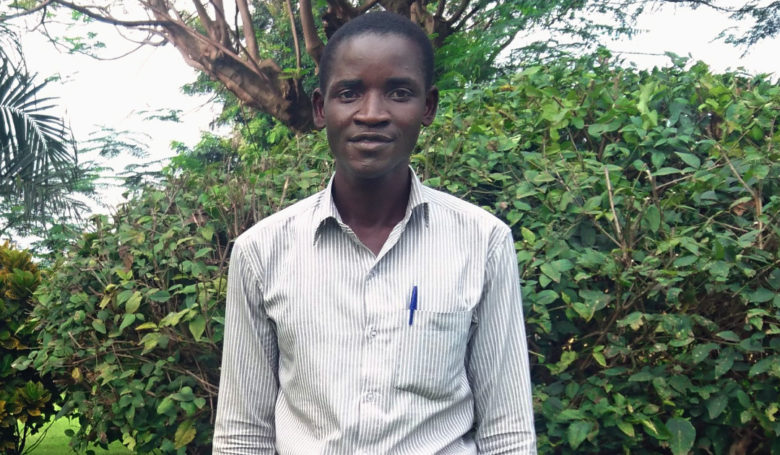Would you sell roof from over your head to secure education for your child?

Burundian Jean Bosco tells his story. He is one of the few Batwas in Burundi to have a university degree.
“I feel incredibly lucky. I want to tell my own story because it is a story of hope and courage. I am Ntirandekura Jean Bosco. I belong to the indigenous Batwa group. I was born in a green, lush village called Ruremba, in Northern Burundi. I am the third oldest of six siblings. My family also includes my Mom and Dad.
When I was little, Ruremba was home to 40 families, each with lots of children. They learn from an early age to adapt to the fact that life is very meager. The source of income for the families was, and still is, the income from the sale of clay pots. In addition, some lucky families cultivated the land.
You may know that life for Batwas is very challenging. It is quite common for them to face days with nothing to eat. There is also so little water available that they rarely get to wash. Batwas usually live in huts made of grass. You can only imagine how cold and humid such a home is. The huts have an earthen floor and fireplace of 3 stones, and not a single bed, mattress, blanket or anything else. This kind of life causes children to be sick. Batwa children get sick a lot. They are common children’s diseases, such as the flu, but because children are already weak due to poor nutrition, these diseases can lead to death. Health care is not available, or it is expensive and too far from our villages.
Can you imagine that of those hundred children, I was the only one who eventually completed elementary school?
When I was in elementary school, a school was built in our small village. A foreign organization was involved in the construction. We Batwa children were financially supported to go to school. There was a hundred children in my class. I wanted to learn to read and write – I thought that would be enough as a goal. Can you imagine that of those hundred children, I was the only one who eventually completed elementary school? The school for the other children ended when support from abroad ceased: their parents couldn’t pay the school fees, or the children were needed to work in the fields.
You may be wondering how I was then able to continue schooling. I vividly remember the day I was walking near my village and saw a Batwa man driving a car! I heard he had got a good job. I couldn’t believe my eyes and even less my ears — I had thought that we Batwas were doomed to live in poverty and misery and we shouldn’t pursue anything greater. Then suddenly before me was a Batwa who had gotten an education, a job and a car!
My parents made a huge sacrifice for me. They moved back to the grass thatched hut so that I could finish my school.
I got tremendous motivation from this experience and persevered in school. At times, however, I had to be without food and there was no homework reading place in our home, let alone the light needed to read. All my siblings dropped out of school. The Batwa man I had seen driving a car toured our village talking about the importance of schooling. He also encouraged my parents to make sure I would finish school. I was a gifted student, which delighted my parents. One day my dad said he sold the tin roof of our home in order to pay for my school fees. My parents made a huge sacrifice for me. They moved back to the grass thatched hut so that I could finish my school. I am grateful to them that they believed in my potential, even though the general sense of community was that educating children is not worth it. Now I am one of the few Batwas, who have university degrees.
I’ve come a long way in my life. It has been helped by the fact that I have always had someone who has believed in my potential. Now it’s my turn to support my own community. The big challenge for us Batwa still is the lack of food as hungry children don’t learn. Batwas need land to farm. In addition, parents of children need information about the importance of schooling and children need encouragement to go to school and do homework. My dream is to see sisters and brothers in my community succeed in their studies, get a profession, and have a better life. It is possible to make this dream come true, but it will take hard work to achieve it. ”
You can help more Batwa children escape the cycle of poverty and make their dreams come true like Jean Bosco did. Be a Miracle Maker and Donate!
